Breaking Science, a pitching competition
‘Close your eyes and imagine you’re in a time machine’
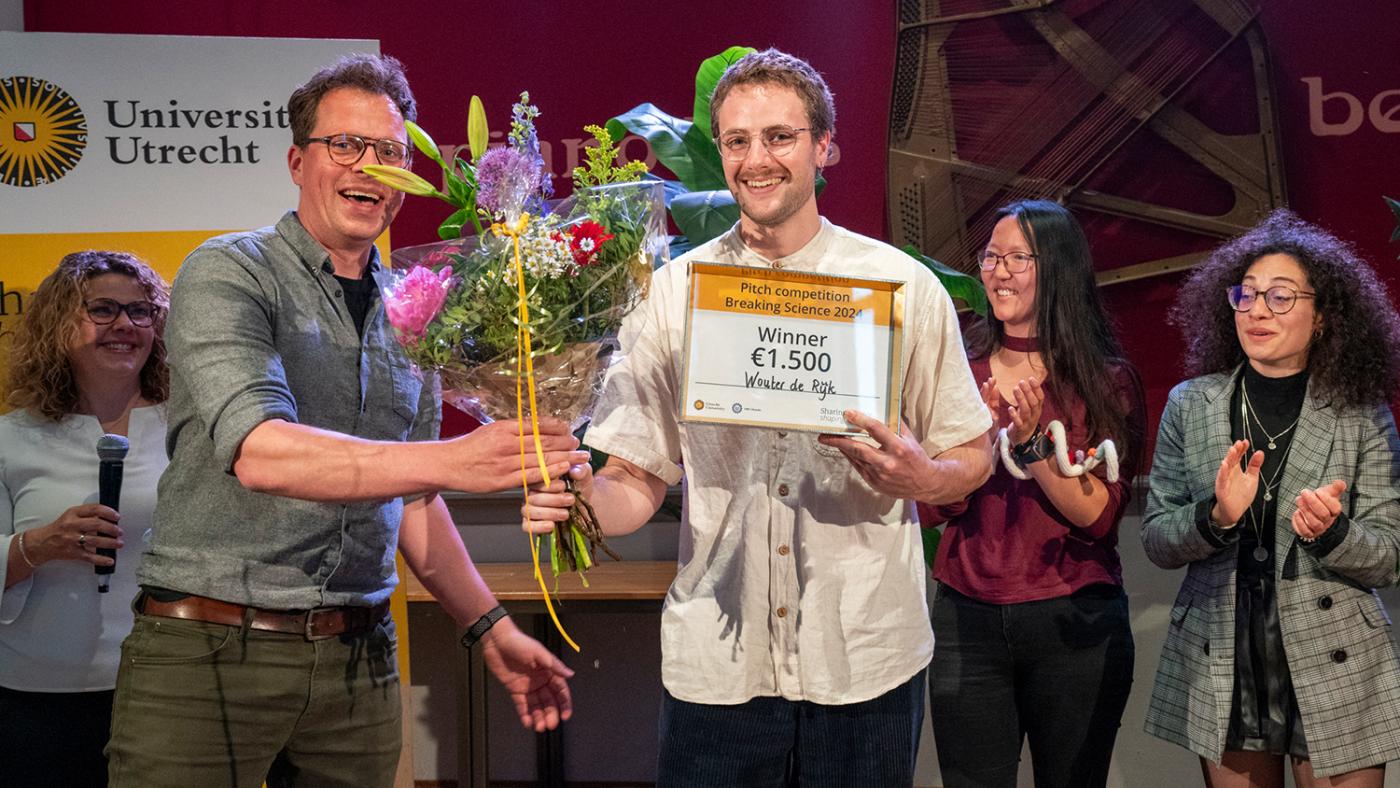
The audience slowly fills Parnassos' Culture Café, chatting with each other, when the clock strikes seven and the Breaking Science final can begin. Professor Mara Yerkes is the hostess. "Many people don't understand what others are studying or researching. Breaking Science offers the opportunity to talk about research in an accessible and manageable way, to an audience with little knowledge about these research fields. All that in a three-minute pitch."
Four preliminary rounds preceded this final, with a total of 29 candidates. The two best ones from each round made it to the final, which means eight young scientists will be onstage tonight. They are only allowed to use a few props, PowerPoint presentations are a no-go. The audience must also join in. They’ve been handed green and yellow cards to interact with the competitors. "The green card can be used to write a question or make a matching drawing. If they hold up the yellow card, they're signalling that they think the finalist should wrap up the pitch," Yerkes explains.
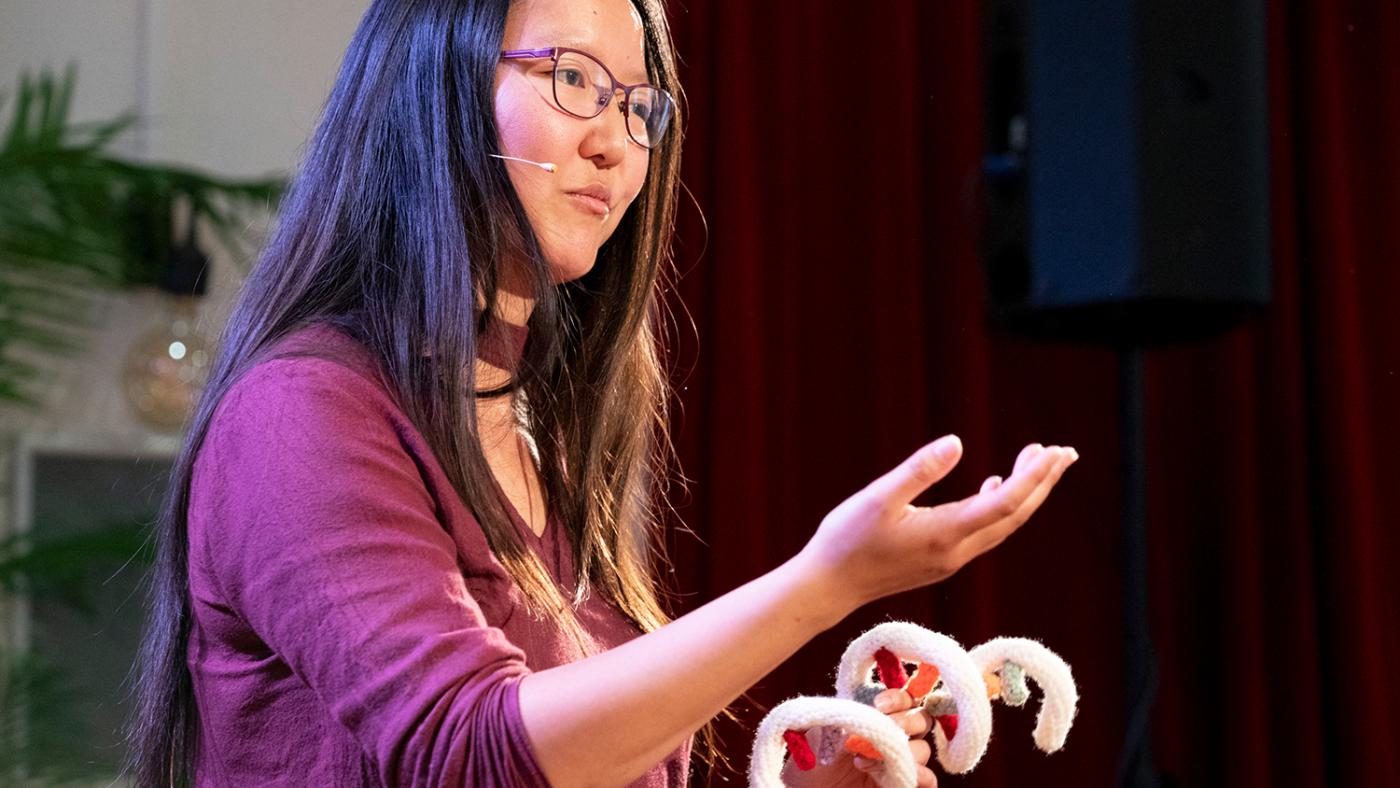
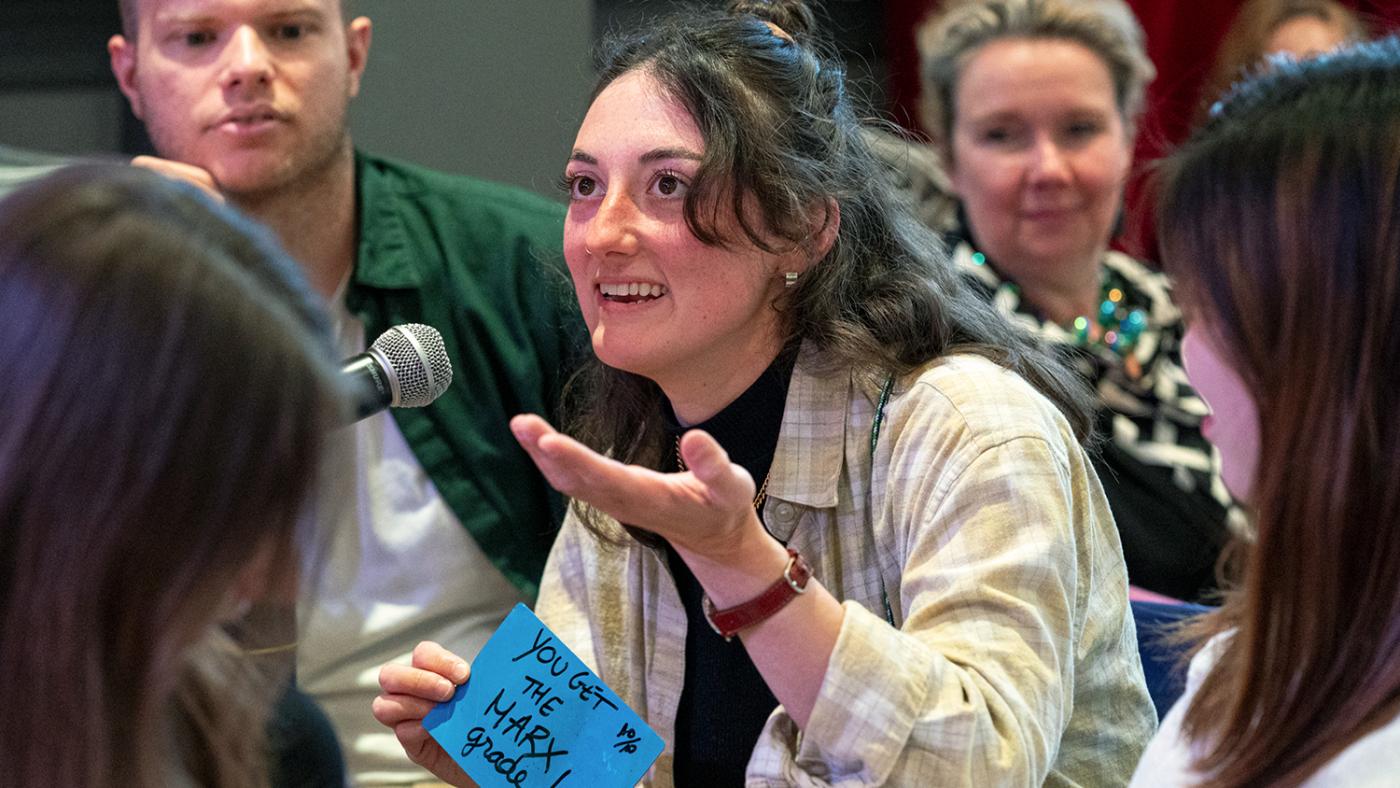
Once the three judges are introduced, it’s time for the first pitch of the evening. "Everybody raise your hands in the air and point north." The hands in the room are pointing in all directions. Finalist Rosa de Boer is a PhD student at the Faculty of Earth Sciences and explains that North is not always in the same place. The audience listens attentively and, before they know it, the pitch is over. The judges compliment De Boer and ask critical questions after which Yerkes walks into the room looking for green cards.
Many finalists use metaphors to make their research clear. For example, cells symbolise parties for some and gangsters for others. One finalist asks the audience if Efteling's rollercoaster was the scariest ride of their lives, after which she tells about the most exciting ride of her own life. The cab she was in almost got involved in an accident due to rising smog. The anecdote is a means to bring up climate change. The finalists have clearly done their best to share their research with the audience in an approachable way.
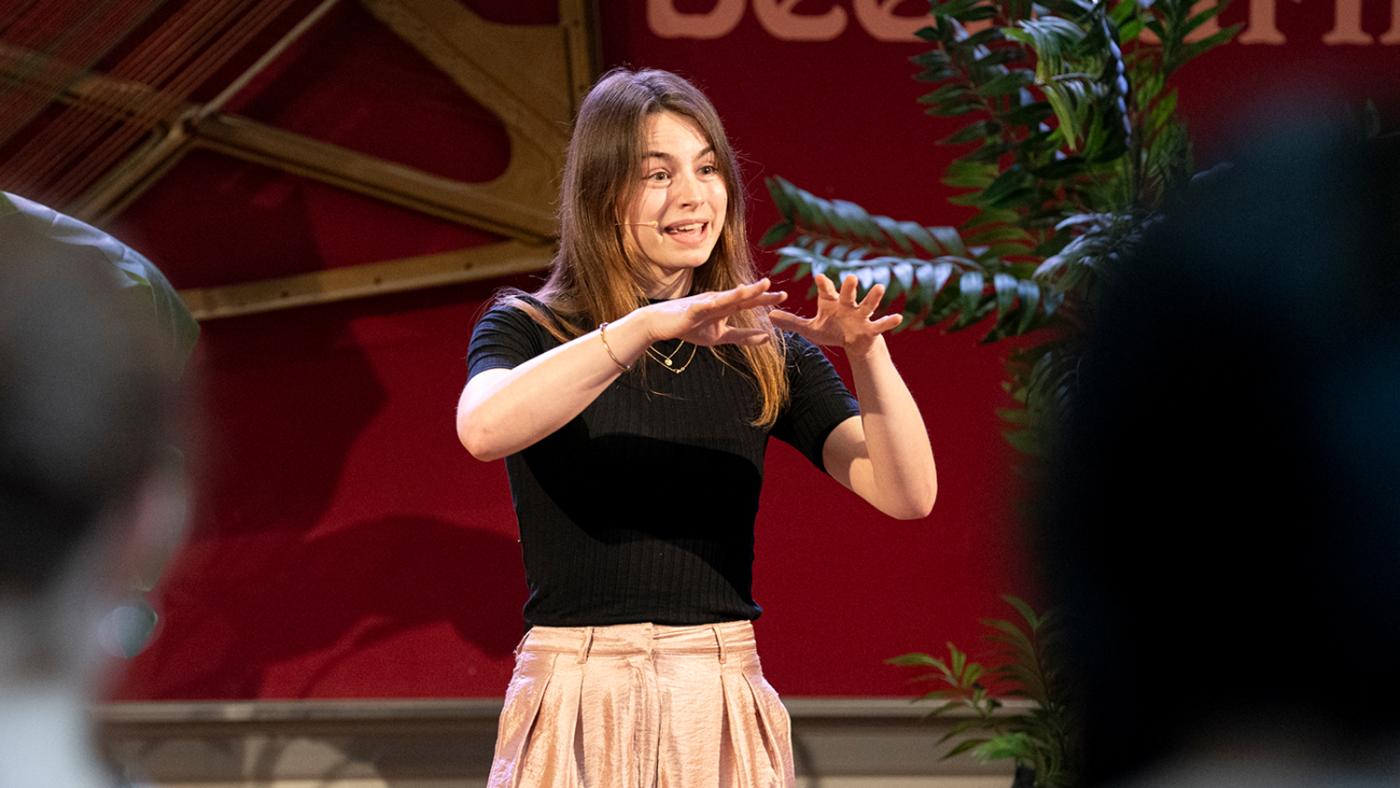
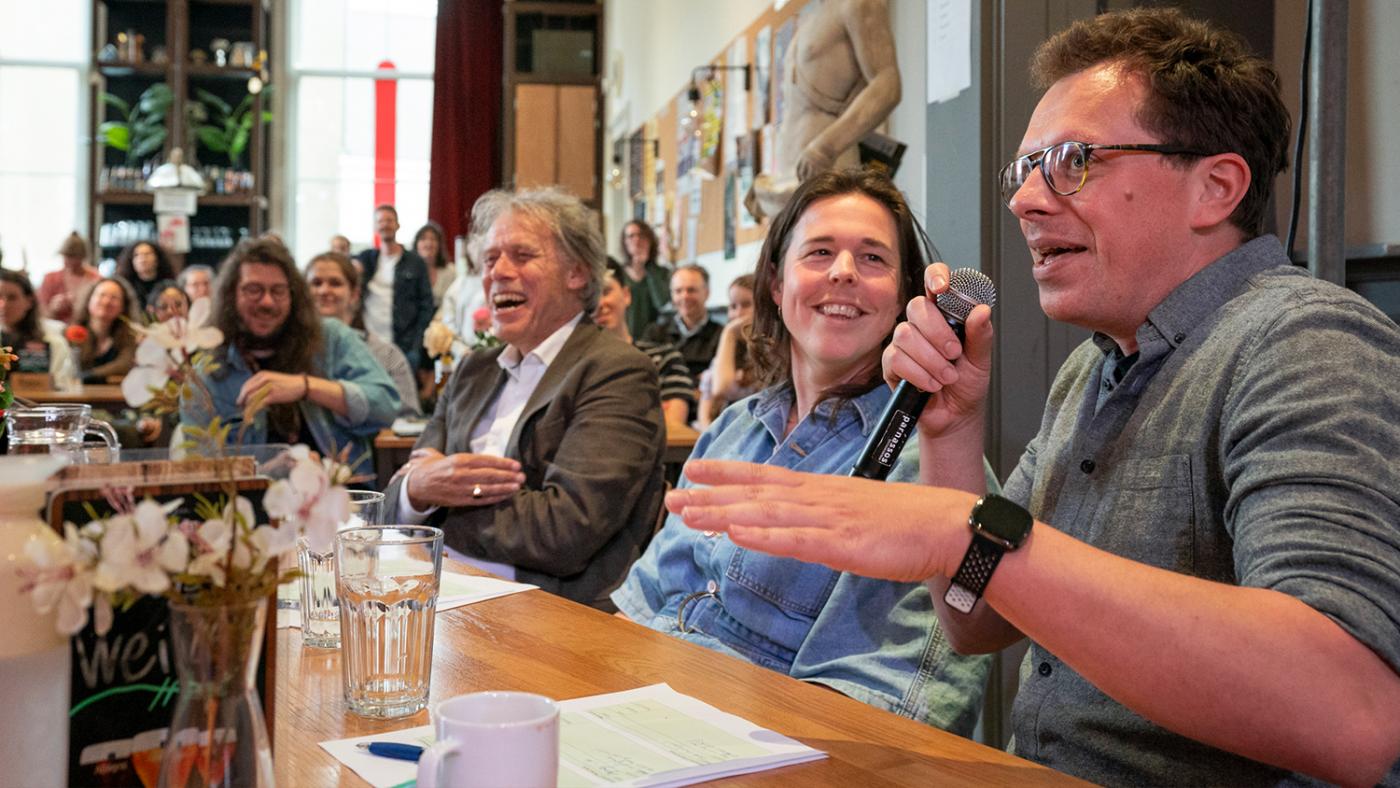
Imagination
The judges took longer than the intended 15 minutes to choose a winner. Finally, they return to the stage to announce that Wouter de Rijk, who researches the role of imagination in climate policy and politics at Public Administration and Organisational Science, was the one who best managed to "break science". The jury crowned him the winner because of the three C's: content, connection, and clarity. Although all pitches were strong, some were more about breaking emotions than science, explained the jury.
De Rijk invited the audience to join him on an adventure: "Close your eyes and imagine that you have just stepped into a time machine taking you to the year 2100." The audience obeyed and closed their eyes, while De Rijk imitated the creaking of a time machine. "What does this new reality look like? If you're anything like me, it doesn't look good." At the end of his pitch, someone in the audience said she imagined exactly what de Rijk was trying to achieve with his research. She didn’t see the negative future image most people imagine, but rather "a clean, beautiful world where the air is pure again."
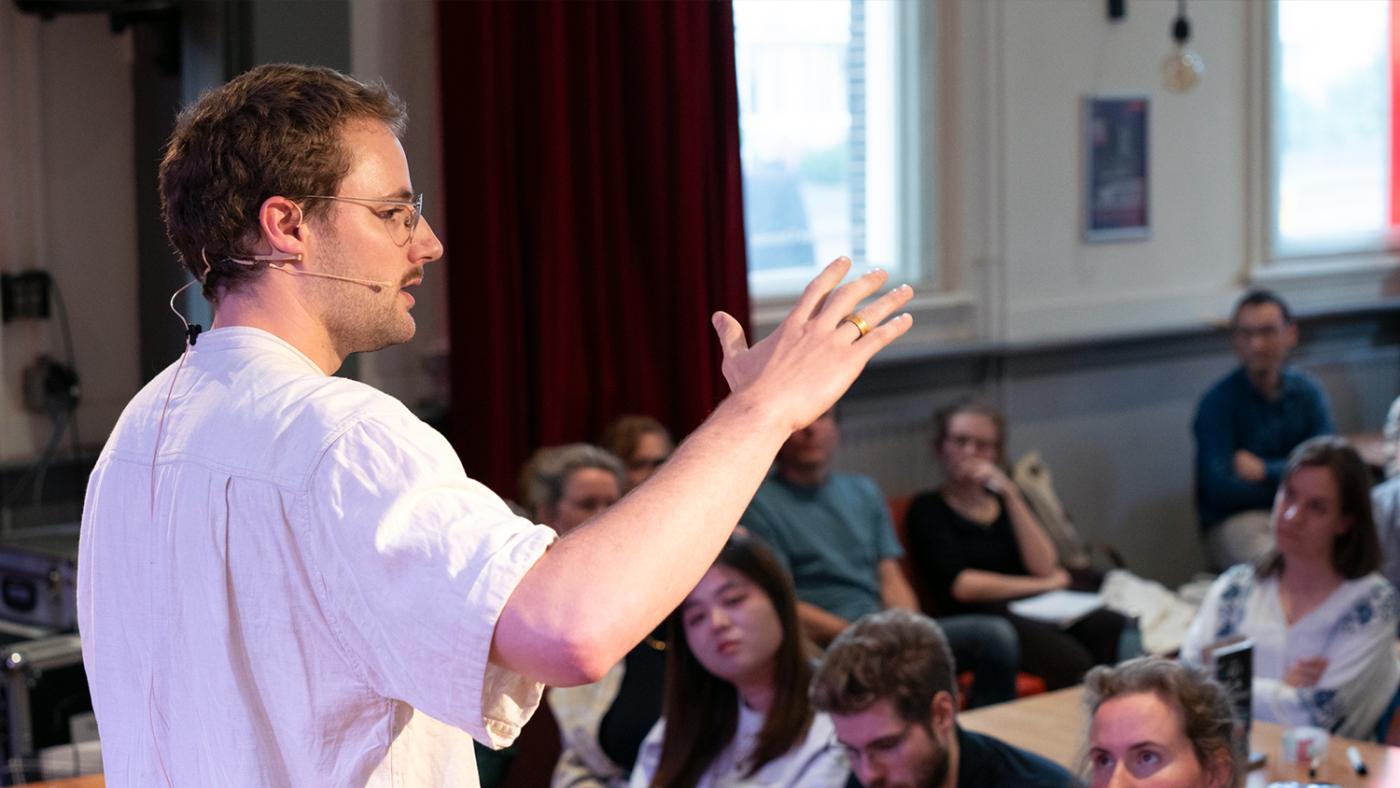
“In my research, I see the climate crisis as a crisis of imagination. The way people imagine things is incredibly powerful. It shapes our social world and has a huge impact on society." He says that, right now, our imagination is mostly stuck in a negative, capitalist way of thinking in which profit is the most important goal, rather than the wellbeing of people and the earth. "Now more than ever, we need an alternative image of the future. People often think there’s only one option, but there are so many different images of the future. I’m researching these alternatives and how we can use them to reclaim our future, politically."
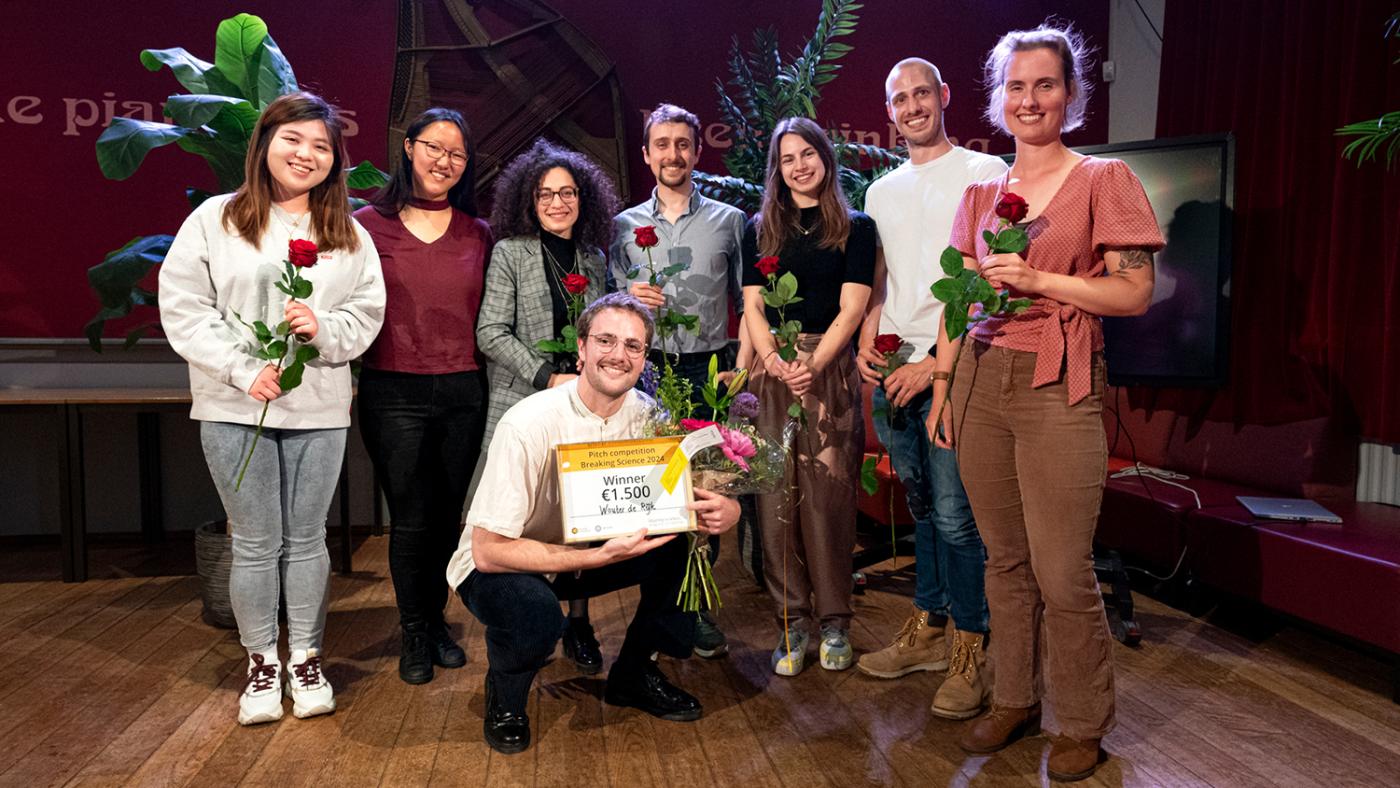
A collective process
The finalists hadn’t exactly been idle leading up to the final. The winner tells us that each candidate attended three training sessions with two overarching themes. "The first theme focused on the content of our pitch. How do you tell a story about a complicated topic in such a short time? The second one was more about theatre exercises. How should you talk, move, and stand on stage? This one aimed to teach how to remain ourselves in a place where tension makes it hard to be yourself."
According to the PhD student, the training sessions were extremely instructive and beneficial for lecturers and students. "At the Bachelor's level, it’s all about content. But how do you introduce that content? The way you do it makes such a difference. Science is often all about writing, but there’s a great deal that's about presenting and engaging with each other. Theatre exercises are extremely useful in this regard."
He changed his pitch after those training sessions. "My pitfall is that I try to explain topics I’m passionate about quickly, citing lots of things. Now I’ve learned to be more specific about what I’m saying and speak calmly, which makes a huge difference in how the message comes across to the audience."
Wouter ended up writing yet another pitch for the final, with the help of a colleague. "My pitch is actually a great example of how science is a collective process. The pitch wasn't just mine, but also of the many others who helped me on my way to the final."